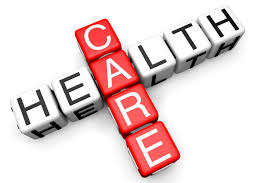Estate planning isn't just for the wealthy. It is to make sure your family is taken care of if something happens to you.
The basic pieces of estate planning are a Will, a Living Will or Durable Power of Attorney, a Revocable Trust, Life insurance, and
Long Term Care.
The basic pieces of estate planning are a Will, a Living Will or Durable Power of Attorney, a Revocable Trust, Life insurance, and
Long Term Care.
1. The Will
The most important part of your estate plan is your will. It names your heirs -- the people you want to receive your money and possessions after you die. If you have children or dependents, a Will also names the person you want to take care of them.
In most states, you need a lawyer to create a will, but it needn't be very expensive. If you die without a will, the state will decide who will get your assets, your money and who will take care of your children.
In most states, you need a lawyer to create a will, but it needn't be very expensive. If you die without a will, the state will decide who will get your assets, your money and who will take care of your children.
2. The Living Will or Durable Power of Attorney
A Living Will or Durable Power of Attorney (POA) says what types of medical treatment you want (or don't want) if you get sick and cannot talk to the doctor. This document also states that you give someone permission to make decisions about your money and property if you are not able to make them yourself.
3. Health Care Directive
This document is also frequently referred to as a Living Will. With this document, you name a person who will make decisions about your health care if you are personally unable to make those decisions. Be sure your doctor has a copy of your health care directive.
Although you may have both documents, keep in mind that they may conflict since the Health Care Directive allows another to make decisions while the Living Will already states what is to be done. Absent statutory or document direction, healthcare providers may experience a conflict as to what to do.
Although you may have both documents, keep in mind that they may conflict since the Health Care Directive allows another to make decisions while the Living Will already states what is to be done. Absent statutory or document direction, healthcare providers may experience a conflict as to what to do.
4. The Revocable Trust
In incorporating a Revocable Trust into your estate plan, don't forget to update all the account titling into the name of the trust. Not changing titles creates problems.
Moreover, never name a financial institution as successor executive/trustee after surviving spouse or instead of a surviving spouse. In some cases, this is to the detriment of the spouse and other beneficiaries because large institutions usually follow their fiduciary responsibilities with a less personable approach that another trustee could provide.
Finally, just having a will just about guarantees probate which can cost approximately 3% of your estate. A properly drafted and funded trust-based plan (seriously consider a land trust if your state laws allow for it) can avoid probate and protect your beneficiaries from predators and creditors. It can also incorporate sophisticated tax planning so that you can avoid or reduce estate tax liability.
5. Life Insurance
Do not name minor children outright as primary or contingent beneficiaries of life insurance or retirement plans. When children are named as primary or contingent beneficiaries a court must appoint a guardian who then must be bonded and file a laborious annual accounting with the local court.
Also, with regards to beneficiaries, it is important to remember to change the beneficiary in the event of a divorce or death. And never name a special needs child or a grandchild directly as beneficiary. Instead, use a trust for the benefit of the child. If you list a child as a direct beneficiary, you affect the child's eligibility for Social Security disability benefits.
6. Long-term Care Insurance (LTCi)
Long-term care can be a wise investment. If you become unable to perform routine daily functions such as dressing yourself then long-term care will pay the expense for someone to help you whether in your home or elsewhere. LTCi will also protect your assets, so that you have something left in your Will to direct to your heirs.
Now its your turn. How much importance do you put on estate planning. Do you think that any one of these steps are more important than another?
Leave your comments below.






